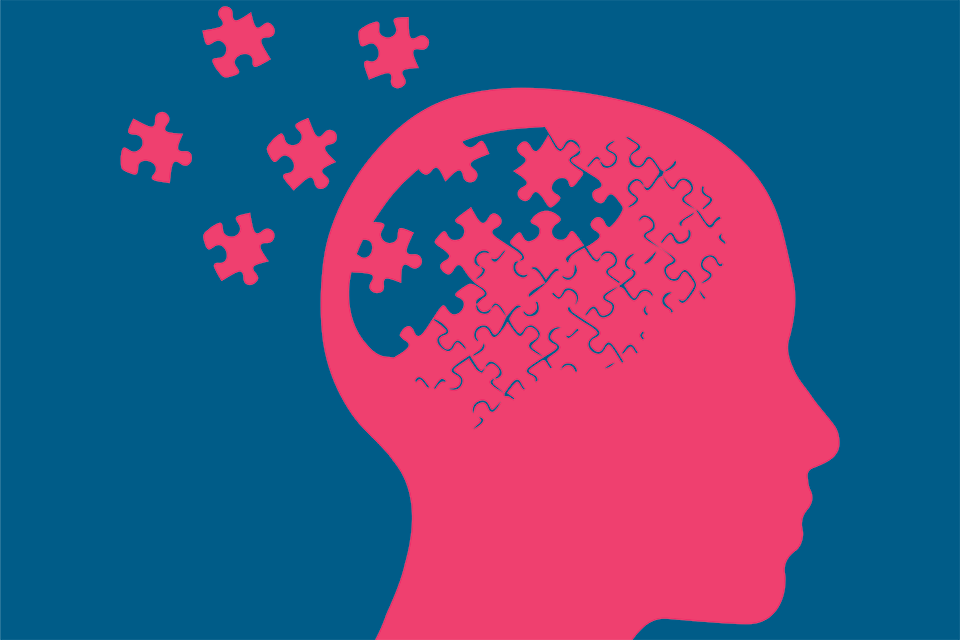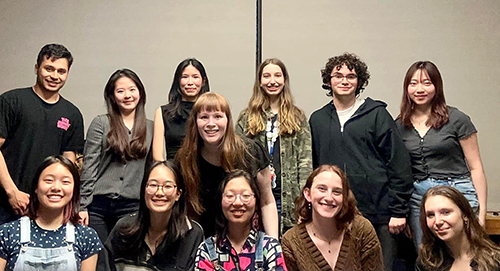The urgency of Alzheimer’s research

Photo Credit: Getty Images
By Kennedy Ryan
August 18, 2023
• Research

Throughout her research experience, Mahon has worked with a variety of research assistants. Photo Credit: Elizabeth Mahon
While some spend their summer at the beach or basking in the sun, students from the Graduate School of Arts and Sciences are hard at work on their research.
Brandeis Stories spoke with Elizabeth Mahon, a psychology PhD candidate and the winner of the 2023 Brandeis 3M Thesis competition, to learn more about her summer in the lab.
How would you summarize your research focus in under 300 words?
In the Lifespan Lab, the goal of our work is to assess long-term predictors of psychological and physical health, focusing on factors that can protect against or minimize cognitive declines in mid- and later-life.
I specifically research whether there are certain voice and physiological biomarkers that can predict longitudinal cognitive declines and identify higher risk of developing Alzheimer’s disease decades later.
My field aims to prevent dementia: if we can identify precursors as early as possible, we could provide intervention that may slow down or even stop the entire progression of the disease itself.
What is your ‘why’? What inspires you to do this research?
About 1 in 3 people over age 65 dies from dementia, with the majority having Alzheimer’s disease.
Whenever I hear of a friend’s parent or my favorite primary school teachers developing Alzheimer’s, I’m reminded of the urgency of our research, and how crucial identifying preclinical biomarkers are.
After graduating, I would like to join the industry field to help further methods that detect people who have higher risk of Alzheimer’s so that they can receive earlier treatment, with the goal of preventing the disease itself.
What are you hoping will be your biggest takeaway from this summer’s research experience?
This summer, I am working on my dissertation of three studies, including a manuscript under review. Reaching closer to the culmination of my work here at Brandeis, I have truly learned that progress is impossible without recognizing your own mistakes; however, you can only nurture your best self within the best community, which I’m fortunate to have every day I come to school.
Interacting with faculty and grad students every day, I’ve felt like I’ve been able to be my genuine self here without fear of judgment. I’ve also discovered my greatest strengths and the best pathways to fulfilling opportunities. Secondly, I’m co-advising 2 thesis students, which gives me fresh perspectives on my own research, but most importantly allows me to help them grow to their full potential.
“Whenever I hear of a friend’s parent or my favorite primary school teachers developing Alzheimer’s, I’m reminded of the urgency of our research, and how crucial identifying preclinical biomarkers are.”
Elizabeth Mahon
This summer my team developed a project that was awarded money through the Brandeis Sprout Innovation program, which gives $100,000 annually to select projects with commercial potential. We hope to cultivate an effective method to assess Alzheimer’s risk that will ultimately result in positive global impact. It has also motivated me as a creator to think “outside the box”, but also to wonder, “what other boxes do we need to interact with that are hidden from sight?”
Throughout all of these experiences, I have found that I truly value advocating for the Alzheimer’s prevention cause and leading a fantastic team to novel discoveries; this insight will help me as I near the end of my PhD journey and begin my career.


